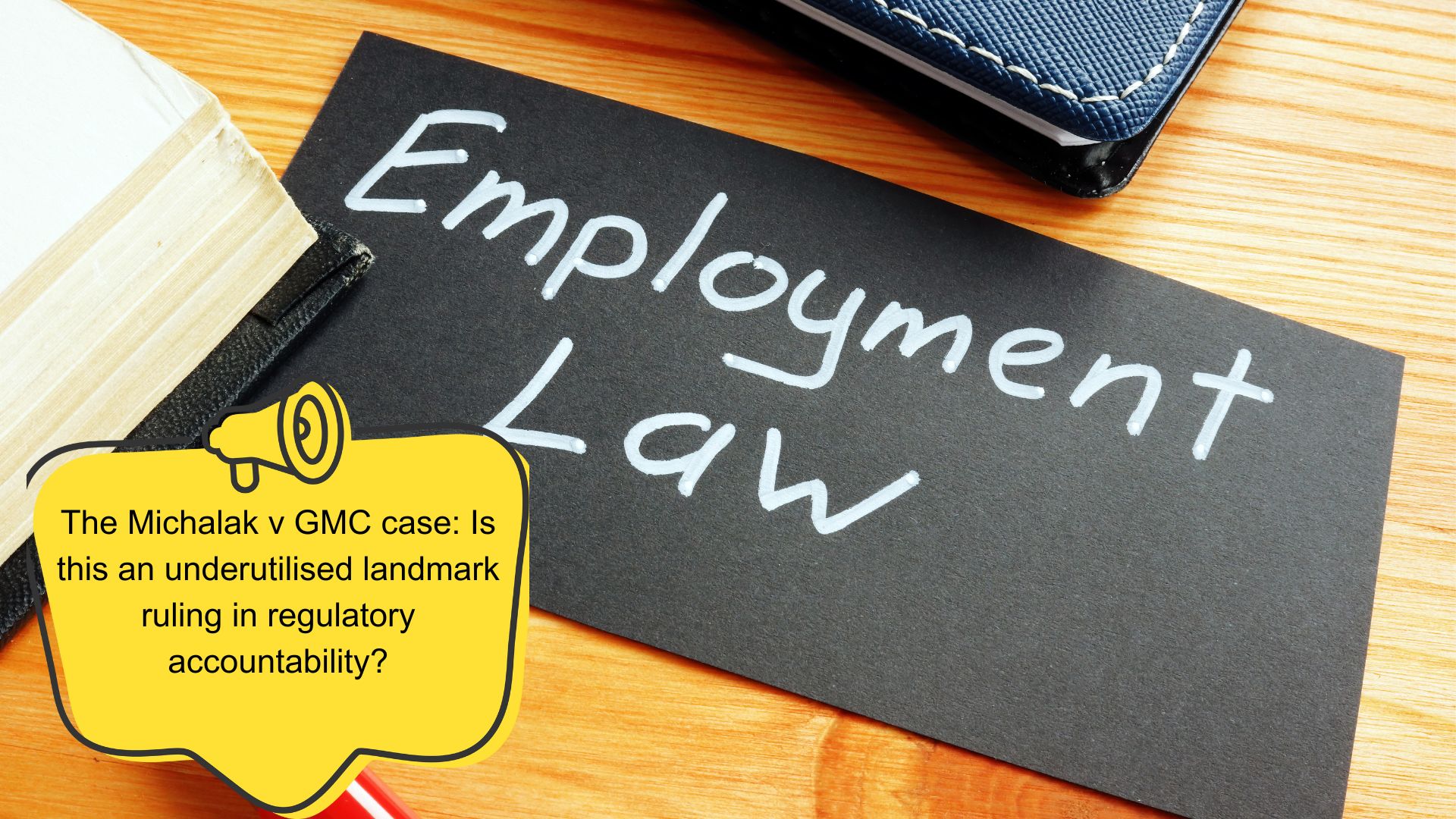The 2017 Supreme Court ruling in Michalak v General Medical Council [2017] UKSC 71 stands as a pivotal moment in the realm of professional regulation in the UK. This landmark decision has significantly impacted how professionals can challenge their regulators, particularly in fitness to practise matters. By opening a new avenue through Employment Tribunals, the ruling has empowered individuals to seek redress for alleged discrimination and unfair treatment.
Background
Dr. Ewa Michalak, a medical practitioner, began her employment with the Mid-Yorkshire Hospitals NHS Trust in 2002. Following her dismissal in 2008, she successfully brought an unfair dismissal claim against the Trust, alleging sex and race discrimination and victimisation.
Before the Employment Tribunal had issued its determination, the Trust referred Dr. Michalak to the General Medical Council (GMC) for fitness to practise proceedings. The GMC subsequently initiated proceedings against her, alleging professional misconduct.
Dr. Michalak countered that the GMC’s actions were discriminatory, both in the way they pursued the fitness to practise proceedings and in their failure to investigate complaints she had made against other doctors.
The Legal Journey
Dr. Michalak brought a claim to the Employment Tribunal, arguing that the Equality Act 2010 provided a legal basis for her to challenge the GMC’s actions. The GMC countered that the Tribunal lacked jurisdiction, citing section 120(7) of the Equality Act, which excludes claims that can be subject to judicial review.
The case progressed through the courts, with the Employment Tribunal initially finding that it had jurisdiction. However, the Employment Appeal Tribunal reversed this decision, holding that judicial review was the appropriate avenue for challenging the GMC’s actions.
The Court of Appeal subsequently overturned the Employment Appeal Tribunal’s decision, finding that the Tribunal did have jurisdiction. The case was then appealed to the Supreme Court.
The Supreme Court Decision
The Supreme Court had to determine whether judicial review was an “appeal or proceedings in the nature of an appeal” within the meaning of section 120(7) of the Equality Act. The Court concluded that it was not.
In a unanimous decision, the Supreme Court held that:
- Judicial review is not “in the nature of an appeal.” It does not involve a full review of the original decision but rather a limited review of the decision-making process.
- Judicial review is not available “by virtue of an enactment” but is a common law remedy.
The Supreme Court’s decision effectively opened the door for professionals to bring discrimination claims against their regulators before Employment Tribunals.
Implications for Professional Regulation
The Michalak decision has far-reaching implications for professional regulation in the UK:
- Enhanced Accountability: Regulatory bodies are now subject to greater scrutiny and accountability. Professionals can challenge discriminatory practices and unfair treatment through Employment Tribunals.
- Specialised Forum: Employment Tribunals have expertise in handling discrimination claims, ensuring a fair and impartial hearing.
- Lower Barrier to Entry: The Employment Tribunal process is often less complex and costly than judicial review, making it more accessible for individuals to seek legal redress.
- Broader Scope of Review: Employment Tribunals can delve deeper into the merits of a discrimination claim, whereas judicial review is limited to procedural issues.
Subsequent Cases
The Michalak decision has influenced subsequent cases, further solidifying the principle that regulatory bodies can be held accountable for discriminatory practices:
- Karim v General Medical Council [2021]: This case involved allegations of racial discrimination in fitness to practise proceedings.
- Meade v Social Work England [2022]: This case highlighted the intersection of gender-critical beliefs and professional regulation.
Conclusion
The Michalak decision represents a significant step forward in ensuring fairness and accountability within professional regulation. By recognising the importance of equality and non-discrimination, the Supreme Court has empowered professionals to challenge regulatory decisions and seek justice.
As the landscape of professional regulation continues to evolve, the Michalak decision remains a vital reference point for practitioners, regulators, and legal professionals alike.

